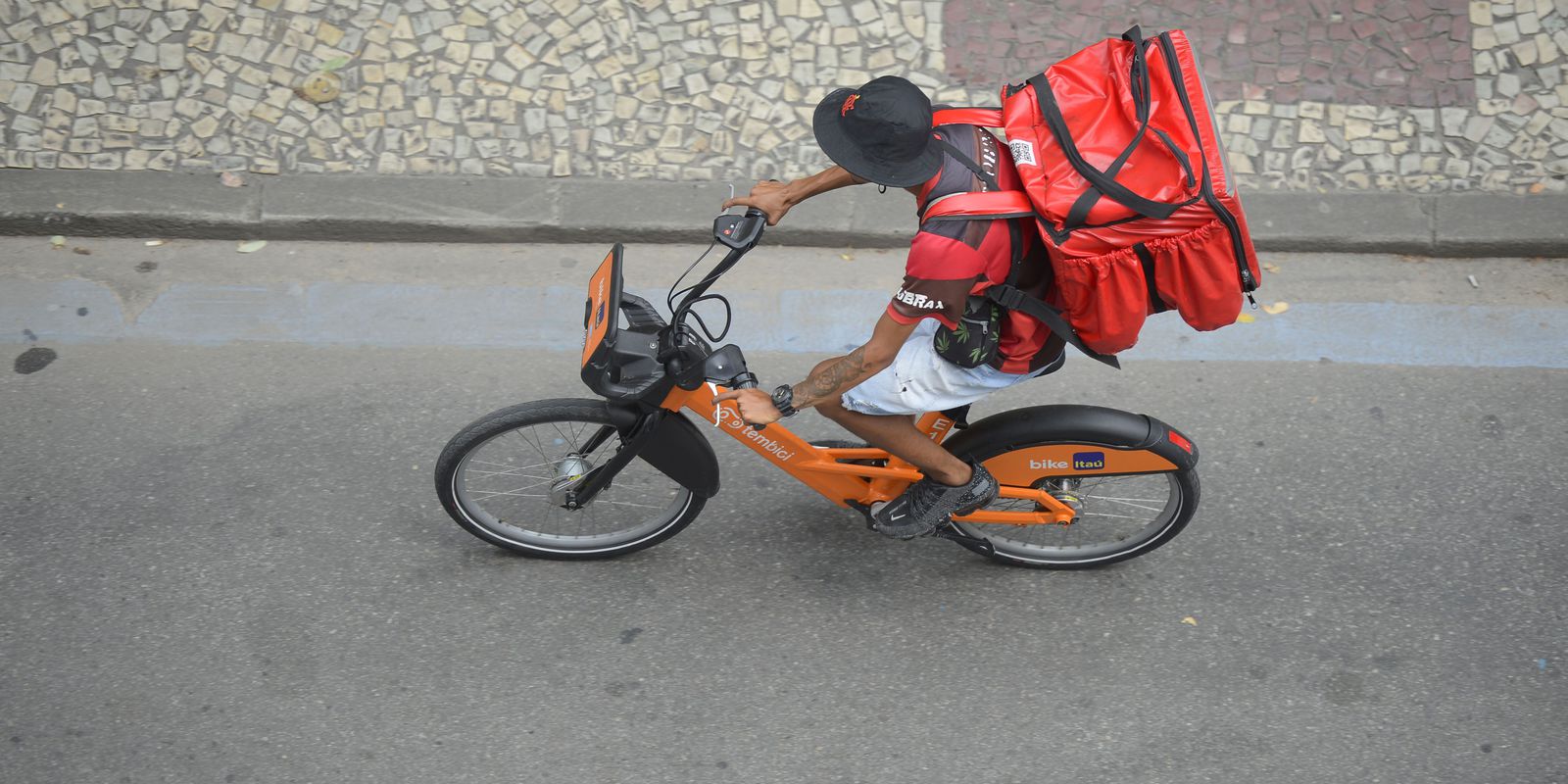A study published today (15) by the Institute of Applied Economic Research (Ipea) shows that only 23% of transport workers by application contribute to the National Institute of Social Security (INSS). The data considers the entire category gig economyexpression used to talk about those who do not have a formal employment contract (without a formal contract), who provide services on demand and on a temporary basis.
Some examples are application drivers, motorcycle or bicycle couriers, and motorcycle taxi drivers. In the last two quarters of 2021, there were 1.5 million people in the country in this modality. In the third quarter of last year, the number reached 1.7 million.
In regional mapping, the contrasts are great. The highest rates of taxpayers are in the South (37%), Southeast (27%) and Midwest (22.9%). Northeast (16.5%) and North (9.6%) have rates well below the national average. Among other self-employed workers who are not in the gig economy, the percentage of contributors to Social Security is higher: 33%. Ipea compares the trajectory of the two groups in recent years and indicates that, while the percentage of taxpayers in this category is falling, the percentage of other self-employed workers remains stable.
The report of Brazil Agency talked to some app drivers. Reasons for not contributing to the INSS may include financial problems, lack of knowledge about Social Security benefits and even distrust of the social security system.
This is the case of Gabriel João, 29 years old, resident of Penha, in the north zone of Rio, who works 8 to 11 hours a day in the app food delivery service. Before the pandemic, he was an attendant at telemarketing and, after becoming unemployed, he saw bicycle deliveries as an opportunity to earn income. Gabriel says that every month he has money left over that could be directed to the INSS, but he prefers to invest in applications such as real estate funds. He thinks about paying Social Security again when he finishes his studies and gets a formal job in the profession of his dreams.
“At the moment, I’m studying to pass the entrance exam and study psychology. I would only work in my field. Other than that, I wouldn’t leave work on the app. I’ve already been promised worlds and depths. I even dropped work with an app in 2021 and was not successful. They wouldn’t be able to offer me the same as what I earned on the app,” she recalls.
Rodrigo Lopes, 30, who lives in Catete, in the south zone of Rio, also works with deliveries by bicycle. Like Gabriel, he was unemployed at the beginning of the pandemic. He was an attendant telemarketing. Rodrigo says that he would like to contribute to the INSS, and the only reason he doesn’t do it is for lack of surplus money. He lives with his father, and the income from work is divided between paying household bills and personal bills.
“I think about contributing to Social Security, but there are so many other things to pay outside, that there is no way to fit that money. It depends on each one’s planning, but I intend to pay when things get better. Here, we have a well-paid job, but the cost is high. And then, I end up prioritizing other things, instead of the INSS.”
Ipea researcher Geraldo Góes reinforces that the low numbers of taxpayers in the modality gig economy increase the vulnerability of workers, who are left unprotected in the face of possible risks. In addition to retirement, those who contribute to Social Security are entitled to benefits such as sickness, imprisonment and accident allowances.
“It is important to think in terms of regulation. In the European Union, the United States and Mexico, some way is already being thought of for these people to have social protection. It is a very important modality of work, but it has this characteristic of vulnerability. Hence, the need for regulation”, says Góes.

















